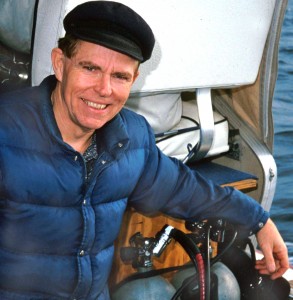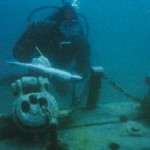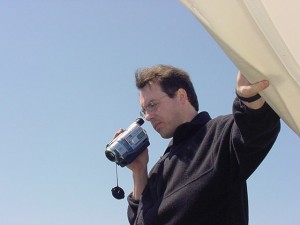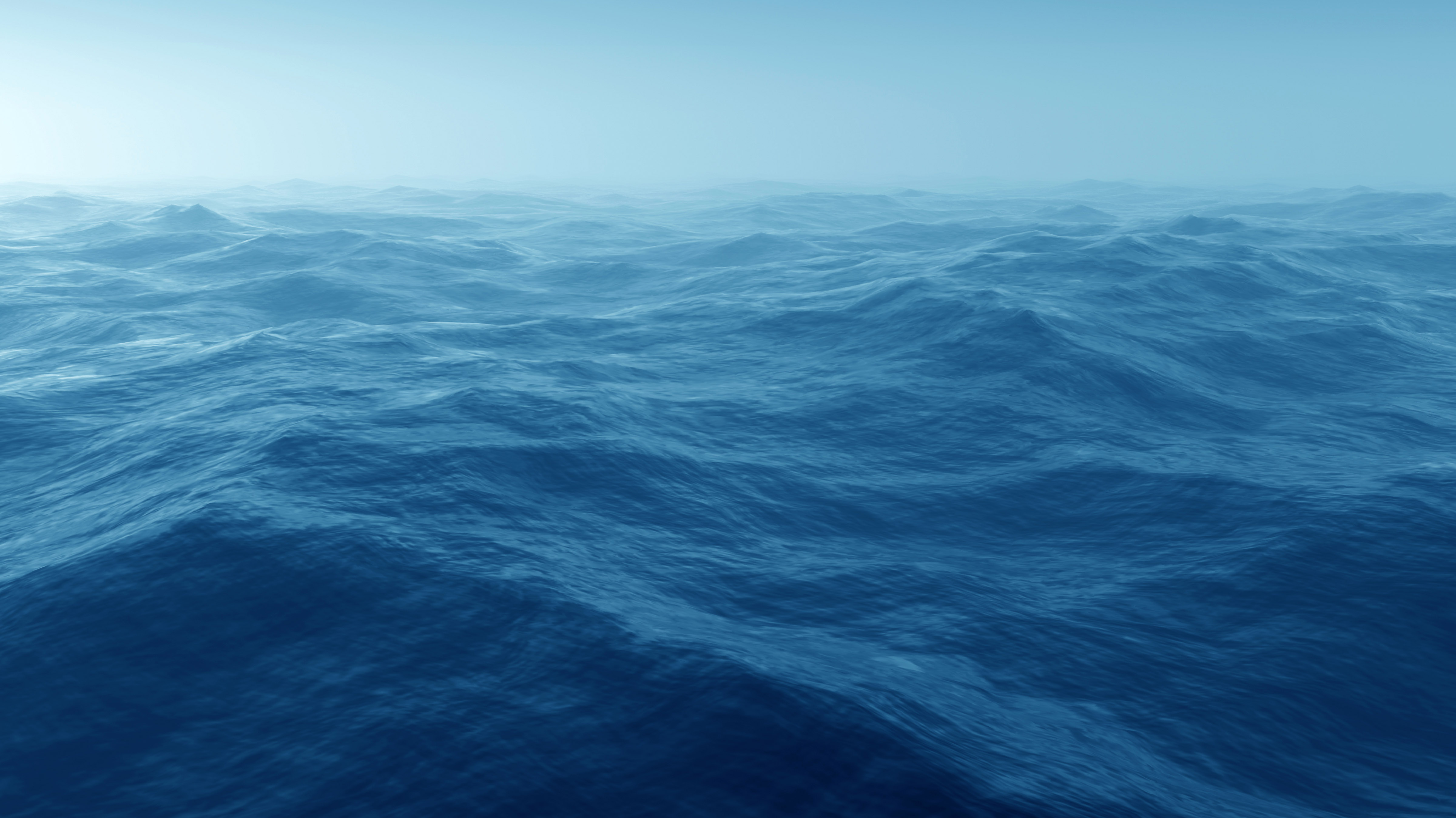Michigan Shipwreck Research Association is a 501(c)3 non-profit corporation, whose mission is to preserve and interpret Michigan’s submerged maritime history. The organization’s work includes research and documentation of submerged cultural resources and the creation of educational resources. MSRA hosts an annual public symposium, maintains this website, and produces a newsletter, documentary films, informative articles, books, and museum exhibits, and it Board of Directors makes presentations to organizations of all kinds.

Craig Rich aboard the U of M research vessel Laurentian
RESEARCH
The Board of Directors, MSRA affiliates, and several active members are maritime historians who are regularly engaged in research. Their research is summarized in the vessel articles on the various pages under the Shipwreck portal reached via the home page.
Research conducted by the organization’s Board of Director, affiliates and members also forms the basis for exhibits, documentary films, articles, and books produced by the individuals and our partners, Lafferty van Heest and Associates Exhibit Design and In-Depth Editions Publishing.
Visit MSRA’s Virtual Museum found on the home page and purchase books that support the organization’s work at the store link on the upper left of this page
EXPLORATION
The waters of lower Lake Mic higan are not sheltered with harbors like so many other areas in Michigan. Prevailing west and northwest winds create conditions ripe for the loss of ships. Since the early 1800s, several dozens of ships have gone missing off the shores of west Michigan
higan are not sheltered with harbors like so many other areas in Michigan. Prevailing west and northwest winds create conditions ripe for the loss of ships. Since the early 1800s, several dozens of ships have gone missing off the shores of west Michigan
Until MSRA was formed, the waters off the coast of West Michigan were some of the least explored in Michigan. Or, perhaps it is more accurate to say they may have been explored, but those divers conducting the exploration were unwilling to share their discoveries with the public.
Since 1998 when the MSRA Board of Directors led the founding of the Southwest Michigan Underwater Preserve, the team has been conducting an annual expedition in search of lost ships. A Shipwreck discovery offers the opportunity to revisit the circumstances of the wreck and delve deeper into the history surrounding these tragedies. Careful study of the sunken remains can offer insights into the cause of the sinking and can help write the final chapter of stories in which there were no survivors. The excitement of a discovery instills new interest into the history of the ship, the people associated with it and the times in which it sailed.
MSRA operates its own sonar and regularly partners with renowned Great Lakes shipwreck hunter David Trotter and nationally acclaimed author Clive Cussler and his sonar expert Ralph Wilbanks. In total, these joint venture partnerships have resulted in the discovery of over a dozen never before found shipwrecks, many of historical significance.
While laws are in place that make it illegal to remove anything from a shipwreck site, the discovery of a new site opens it up to the potential of pillaging and disturbance. MSRA takes this responsibility of uncovering shipwrecks seriously and strives to document sites before they become the focus of intense diver visitation. MSRA also supports sharing newly discovered sites with responsible sport divers to make these wrecks available for recreational activity as soon as possible after the discovery.
DOCUMENTATION
 The study of the remains of a shipwreck can provide a wealth of information. Measurements of the ship and a documentation of its construction can help to positively identify the ship. Damage to the vessel can provide reasons why the ship sank and can help draw conclusions about the final moments aboard the doomed vessel. A study of its construction methods offer insight into shipbuilding. Remains of its cargo bring to light information not otherwise available in historical archives. Shipwrecks provide a wealth of Information.
The study of the remains of a shipwreck can provide a wealth of information. Measurements of the ship and a documentation of its construction can help to positively identify the ship. Damage to the vessel can provide reasons why the ship sank and can help draw conclusions about the final moments aboard the doomed vessel. A study of its construction methods offer insight into shipbuilding. Remains of its cargo bring to light information not otherwise available in historical archives. Shipwrecks provide a wealth of Information.
Depending upon the shipwreck, its depth, and its potential to offer historical information, MSRA engages in Type I and Type II archaeological surveys, producing scaled drawings, artists renderings, composite mosaic images, artifact documentation, and still and video photography of the sites.
For divers who may visit a shipwreck site, MSRA’s survey work provides an assessment of the safety of the site from hazards such as lack of structural integrity, possible entanglements in nets and lines, and potential disorientation. It also offers divers the opportunity to familiarize themselves with the layout and condition of a wreck before attempting a dive, which is of particular importance if it is a deep dive.
INTERPRETATION
Reaching the public with the fruits of MSRA’s labor is a key element of M SRA’s mission. To that end, the organization maintains this web site, produces a newsletter, hosts the annual
SRA’s mission. To that end, the organization maintains this web site, produces a newsletter, hosts the annual
Mysteries & Histories symposium in Holland, Michigan, presents at various maritime and shipwreck conferences in the Midwest, produces documentary films, articles, and books, and maintains a virtual museum. Its board members are also available to make presentations to service clubs, historical societies, and church groups. See the contact page at the top to schedule a presentation for your organization either with Valerie van Heest or Craig Rich or both.

